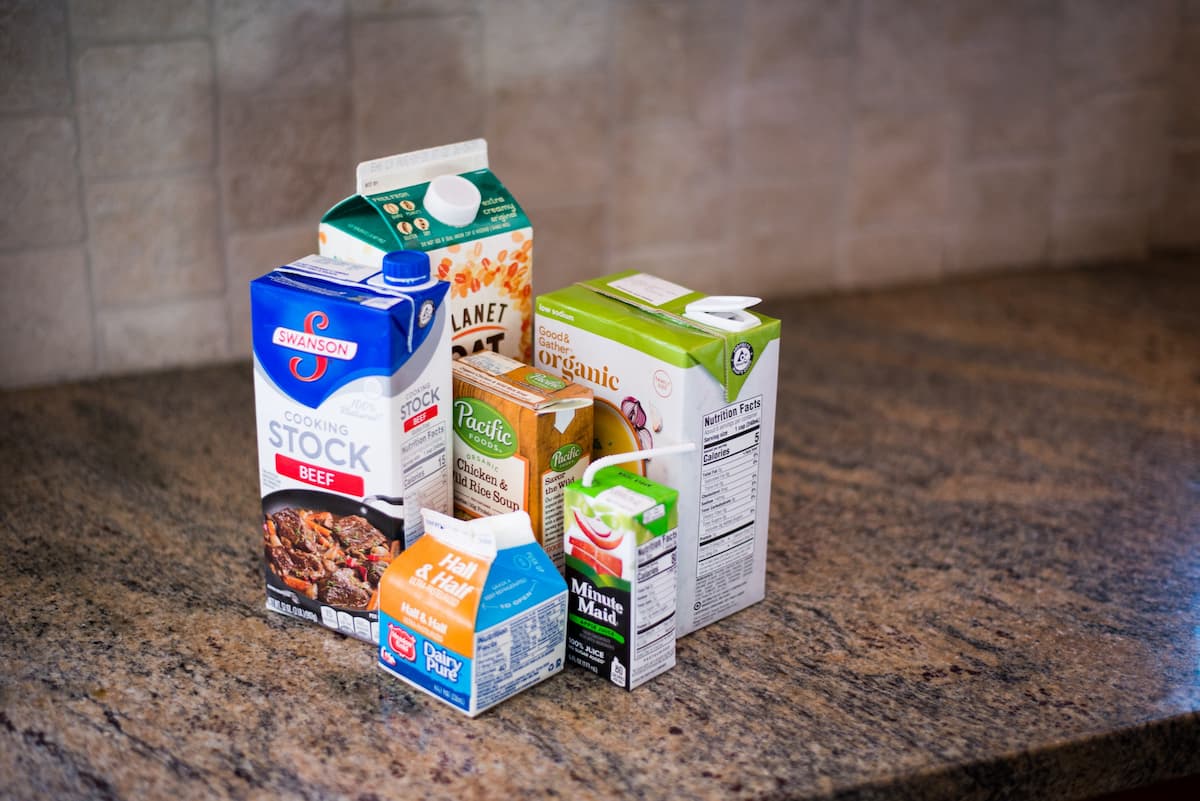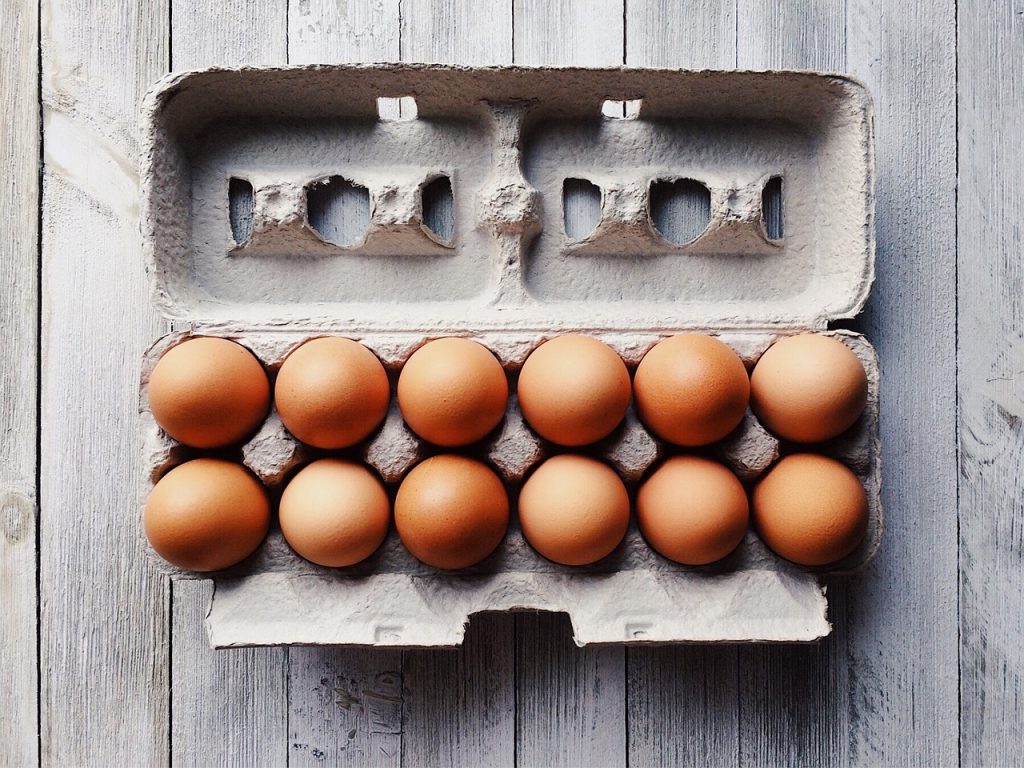
Dear Eartha, I am so confused by cartons. Egg cartons, ice cream cartons, juice boxes. What exactly is a carton?
I feel your pain. My grandma calls cardboard boxes cartons, most juice boxes can be recycled as cartons, and foam egg cartons (yes, they unfortunately still exist) are 100% trash. When we talk about cartons in the recycling industry, we’re referring to box-like cartons such as shelf-stable soup cartons and small juice boxes, as well as gable-top cartons that typically contain milk, coffee creamers and pourable egg whites.
What the heck is a gable top? Flash back to elementary school and imagine yourself in the cafeteria, anxious for a sip of chocolate milk and wrestling to open the little carton. That’s a gable-top or pitched-roof carton. My kids still drink chocolate milk from gable-top cartons in the school cafeteria, and at the grocery you can find plant milks, dairy milks and more in gable-top cartons. All this is understandably confusing, even to the most dedicated recyclers. And, the fact that we refer to many other types of containers as cartons complicates things even further. Let’s break it down.
Recyclable Cartons
It’s important to note that cartons – the boxy and gable-top ones that hold milk, soup or juice – are accepted at Summit County’s three drop-off recycling centers. Cartons are not accepted in single stream recycling (like you might have at your house). To understand why, we need to look at how cartons are made.
Cartons are mostly paper, with a thin layer of plastic inside and out. The plastic layers keep the delicious chocolate milk in the package, instead of leaking through the paper. Shelf-stable cartons including juice boxes, soup cartons and nonrefrigerated milks also contain a thin layer of aluminum to block light and oxygen. This helps keep products fresh without refrigeration.
Most companies that recycle cartons separate the paper from the aluminum and plastic. The paper is turned into new products such as tissues and paper towels. The aluminum and plastic layers may be recycled, or in some cases, trashed. Other recyclers shred the cartons, apply heat and press them back together into large sheets that are made into ceiling tiles. Pretty cool, right?
However, some facilities that sort single stream recyclables cannot differentiate cartons from paper. And if a carton ends up at a paper mill rather than a carton-specific recycling facility, it becomes trash. That’s why here in Summit County, the best and only way to recycle cartons is to bring them to the local drop-off centers, which have bins specifically for carton recycling.
Egg cartons
Now, let’s get into some of the other items we call cartons. Egg cartons typically come in three different forms: paper, plastic or foam. Paper egg cartons, which can be colored brown, beige and even green, are accepted in single stream recycling or in the cardboard bin at local recycling centers. Plastic and foam egg cartons are trash.

Trash the coffee cups, ice cream containers, and takeout boxes
You might not consider these cartons, but packing is confusing, especially these items – although this is by no means an exhaustive list. Coffee cups, ice cream containers and takeout boxes all belong in the trash. Whether your takeout box looks like paper, plastic, or is so-called “compostable,” the fact is that none of these containers are recyclable locally.
All this packaging trash can be exhausting to think about, but hope is on the horizon. Earlier this year, state legislators passed a bill requiring product manufacturers to pay into a recycling fund based on the amount of packaging they use and the environmental impact of that packaging. Over time, ice cream makers and many other types of product manufacturers will be incentivized to package their items in more sustainable (and recyclable) options.
Cardboard boxes
Let’s end with an easy one. No matter what you call them, carboard boxes are not only ripe for reuse (closet storage, anyone?) they’re also a valuable product that can be recycled many times over. Recycle cardboard, brown paper cereal boxes, and brown paper bags in single stream or in the cardboard bin at local recycling centers.
And remember, if ever you find yourself wondering whether something is recyclable, fire up your phone and visit HighCountryConservation.org. Explore the search tool or just call the office and eliminate recycling confusion.
